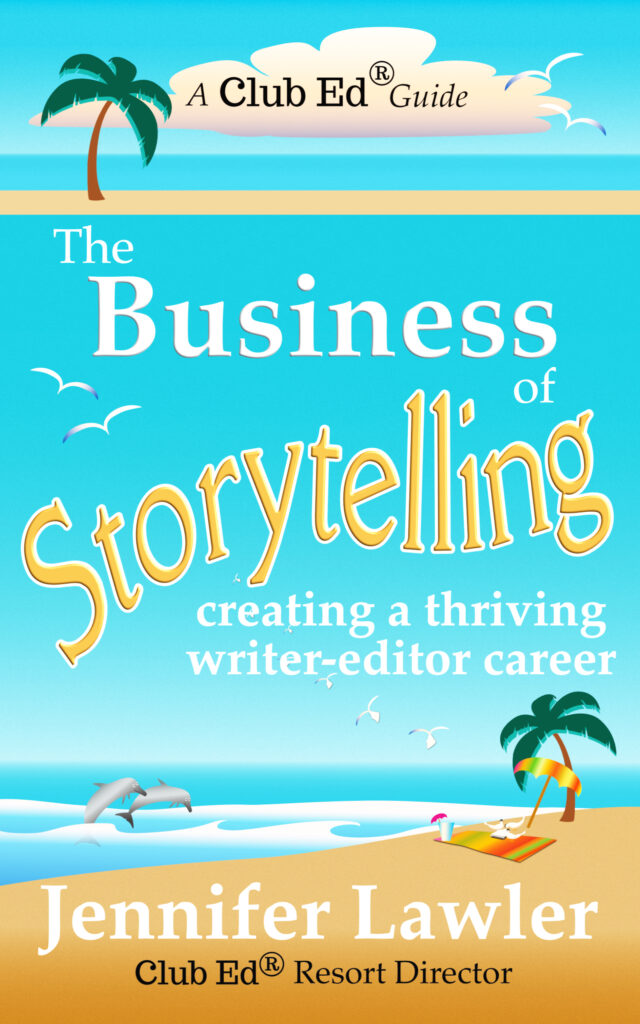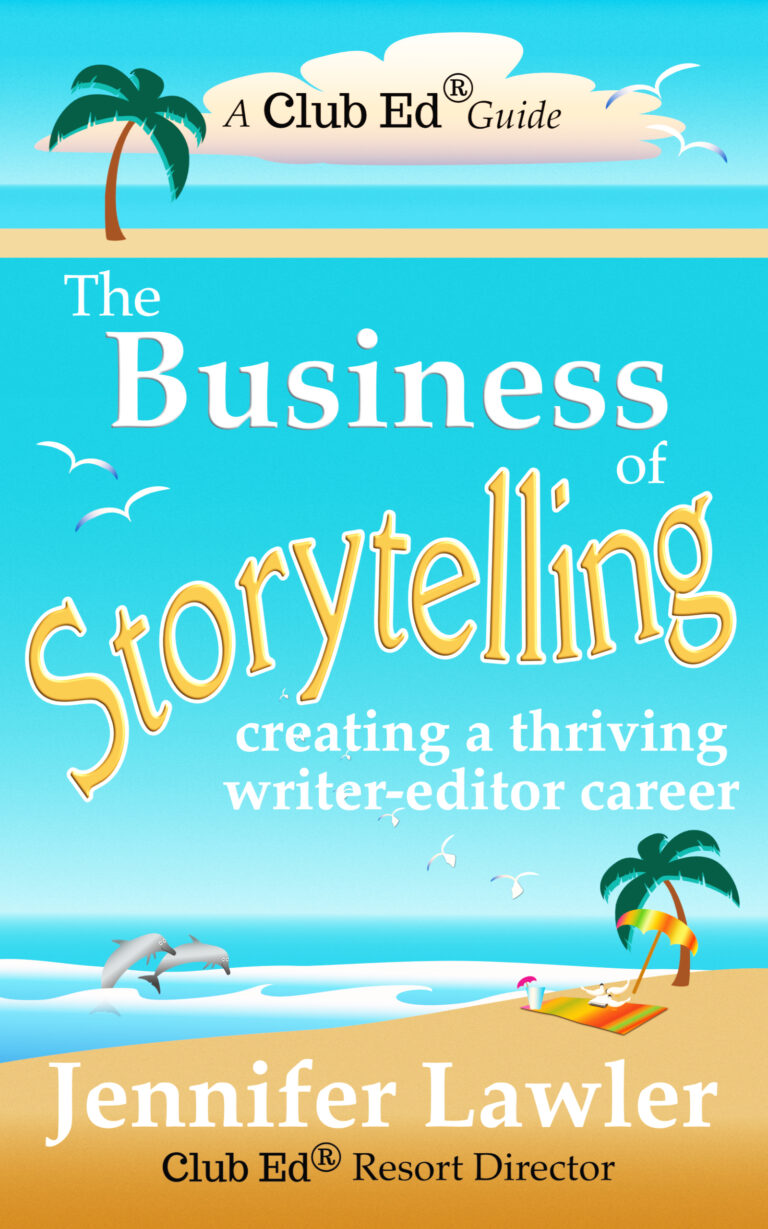Establishing – and Juggling! – Multiple Streams of Income for Editors and Writers
Multiple streams of income. You’ve probably heard that as a writer or editor (or writer-editor) you should have them—but how? And why? Here is my best advice for establishing multiple streams of income for editors and writers.
Multiple Streams of Income for Editors and Writers
Simply put, having multiple streams of income means you earn money from various sources. A staff reporter has one source of income, her employer; a freelance writer may have ten or more, depending on how many clients she’s juggling at any given time.
Beyond that, though, and what I think is most important for freelancers, is the concept of having a variety of types of income. This makes intuitive sense to most people. If you have one spigot, and it gets turned off, you’re going to go thirsty. If you have ten, and one gets turned off, well, you still have nine to draw water from.
That’s the key to surviving the often-turbulent waters of freelancing. For many years, writers who wrote exclusively for consumer magazines did very well for themselves—and then the economy tanked, and print media was devastated, and those writers were left scrambling to regroup when assignments stopped coming.
Going from 80 to 0 in a couple of months is like slamming into a brick wall. It takes a while to shake it off. Writers who weren’t so heavily invested in writing for consumer magazines had an easier time of navigating the new waters.
The problem—which I’m sure you can immediately see—is that you can get too scattered chasing all kinds of opportunities and end up with nothing much to show for your efforts. Everyone has a limited amount of resources (time, attention, energy, knowledge). If I’m trying to break into freelance journalism, should I also be trying to break into book publishing and content writing at the same time?
Probably not.
How I Built Multiple Income Streams
Although I now have many sources of income—book royalties, teaching, editing, coaching—I certainly didn’t start that way. I didn’t pursue all of the possibilities at the same time.
I started with books, mostly because I’d always wanted to write them. I focused on martial arts related topics (a subject matter I knew pretty well). Then I started to write for magazines: first, I wrote for magazines that published martial arts content, then I wrote articles with a martial arts slant for general consumer magazines. Then an opportunity arose for me to edit a martial arts magazine, so I branched into that.
In the meantime, because I had become familiar with book publishing, and I had some editing skills and deep intimacy with The Chicago Manual of Style (from grad school days), I started doing copyediting and developmental editing for book publishers. Then came chances to teach writing and editing skills at various universities (as well as online courses I developed myself).
What’s effective about this approach is that I got pretty good at one skill (say, writing books). Then I branched out and got pretty good at another skill (say, writing articles). Then I spent time mastering yet another skill (editing magazines). Each time, I was getting paid for mastering the skill, and I didn’t try to take on too many new skills at one time. In practice, how does this work?

The Most Effective Way to Build Multiple Streams of Income for Editors and Writers
Each year, I look at my income, creative, and personal goals. I look at the mix of work I have, consider what I would like to be doing, and make adjustments. If I have too much of one kind of work, I will tend to solicit another kind.
How do you get started creating multiple streams of income? First, look at where the opportunities are. I recently got a question from a reader who wanted to know how to make a living writing short stories and poetry. If I had that secret, I would sell it for ten million dollars and go to the islands. There just aren’t many opportunities to make money selling short stories and poetry.
That doesn’t mean they aren’t worth doing, but that work needs to be filed in the “personally fulfilling” category and not the “how I’m gonna pay this month’s rent” category.
The opportunities are going to be a little bit different for everyone, depending on what your skills are, what network of freelancers you’re linked into (they’re going to be one of your best sources of leads to new opportunities), and what you find interesting to do. In other words, you need to make logical connections.
If you write content marketing pieces about a certain subject matter, could you write a book? Could you give classes? Could you edit other people’s writing on the subject?
One of the best ways to get started is to expand your horizons with your current clients so you can get the skills, experience, and portfolio you need to work in another field. So, for example, if you write for a website, and you’d like to do more photography, it’s a fairly simple proposition to propose a photo-heavy piece to your editor. Now you have a solid credential to show to potential clients. I know one writer who has turned his photography skills into a steady stream of business shooting other writers for book jackets and promotional material.
He happened to make the connection between the facts that 1) he had good photography skills and 2) he knew lots of writers who needed photos for various PR-related purposes. It didn’t take him a huge investment of time, money, or effort to let these people know that he could help them solve a problem (how to get a flattering photo from someone who understood their needs).
How You Can Apply This Method to Your Business
What skills and relationships do you have that you can make connections between? What do your clients wish they had that they don’t? Who is the connector in your life—the person who knows everyone and what they’re up to? Does that person know that you’re looking for connections?
Be open to new possibilities, but also let things evolve. I took my first stab at teaching an editing class about fifteen years ago, but it didn’t work out as I’d hoped and I ended up only teaching one class. A few years later, an opportunity to teach copyediting at the University of California – San Diego came around and I took it. Some years after that, an opportunity to teach developmental editing opened up and I had great success with it. Eventually I built Club Ed.
The lesson? Plant the seeds, cultivate them, make adjustments as you go along. We’re looking for a flower garden here, not a field of corn, so your seeds shouldn’t all look the same. Ultimately, this is the path to multiple streams of income for editors and writers, and my business is proof that it works!
Tips for Editors & Writers
-
How to Create Defensible Edits
As a developmental editor, you need to know how to create defensible edits of a manuscript to help authors put out their best work. Tips for How to Create Defensible Edits When you’re doing a developmental edit—looking at the big-picture overview of a novel—you’ll generally be expected to provide two main services: The editing on…
-
When Is a Book Ready for Editing?
Both authors and editors have the same question at some point in the book writing / publishing process: When is a book ready for editing? So When IS a Book Ready for Editing? The creative process is not timely and linear, which is why, as an editor, I don’t book edits before an author’s manuscript…
-
Effective Client Communication for Book Editors
Managing client expectations is necessary for a successful business so here are my tips for effective client communication for book editors. My Top Tip for Effective Client Communication for Book Editors One way to avoid an unhappy client is to communicate all relevant information from the very beginning of your relationship with them. Clearly stated…
Join the Club!
New to story editing? Begin at the beginning.



